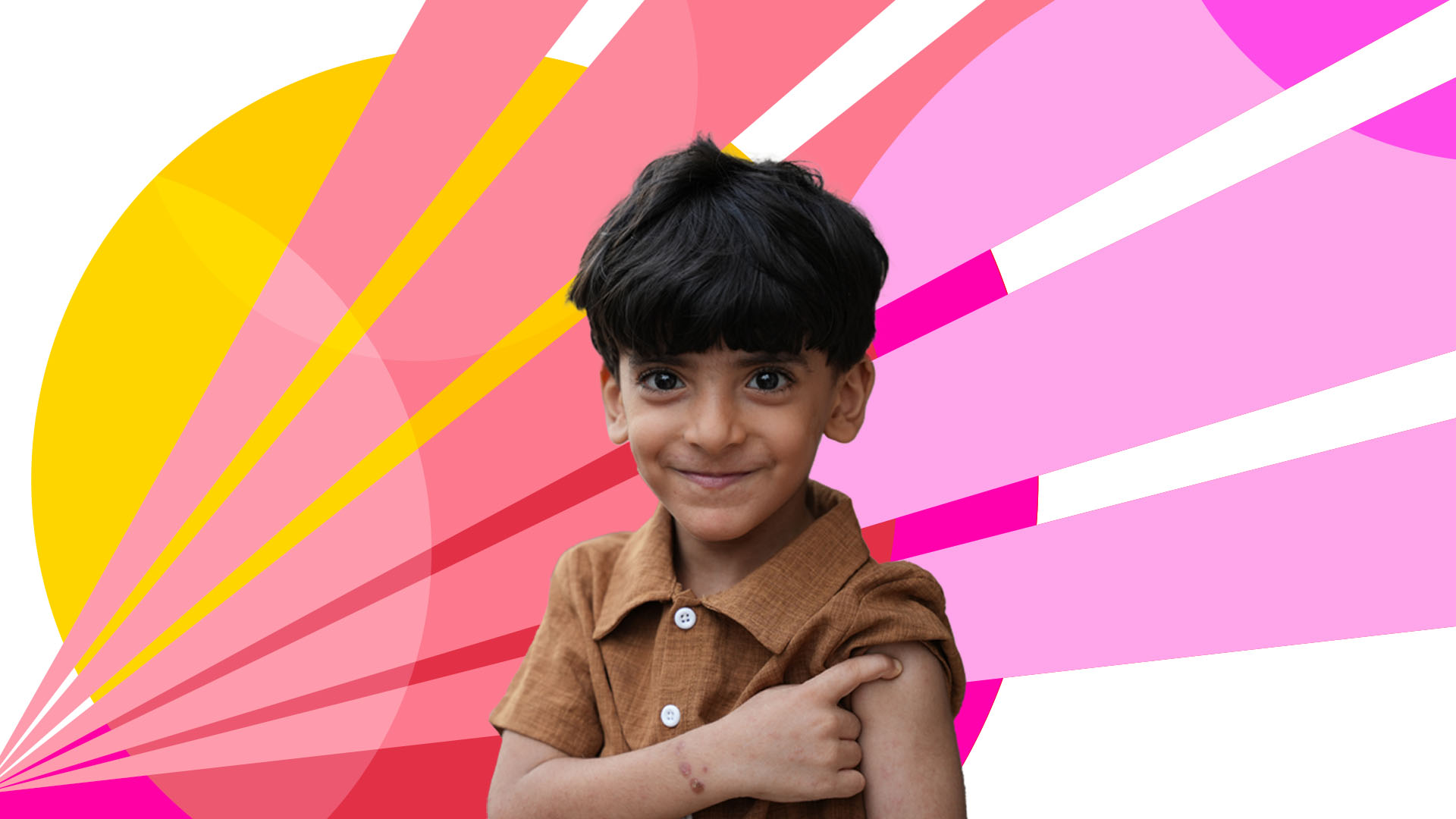World Immunization Week 2024
Humanly Possible: Saving lives through immunization
24 – 30th April 2024

This year World Immunization Week will celebrate 50 years of the Expanded Programme on Immunization (EPI) – recognizing collective efforts to save and improve countless lives from vaccine-preventable diseases and calling on countries to continue to increase investments in immunization programmes to protect the next generations.
At its inception in 1974, the Expanded Programme on Immunization (EPI) focused on protecting all children against 6 childhood illnesses, but today, this number has grown to 13 universally recommended vaccines across the life course, and 17 additional vaccines with context dependent recommendations. With the expansion of vaccination programme across the life course it is now called the Essential Programme on Immunization.
Immunization campaigns have enabled the eradication of smallpox, nearly defeated polio, and ensure more children survive and thrive than ever before.
In the last few years during the pandemic, progress on immunization slipped. While more than 4 million more children were vaccinated globally in 2022 compared to 2021, there were still 20 million children who missed out on one or more of their vaccines. Growing conflicts, economic downturns, and a rise in vaccine hesitancy are some of the threats to efforts to reach these children. As a result, the world is seeing sudden outbreaks of diphtheria and measles diseases that, until now, we’d had nearly in hand. While global vaccine coverage is good –– with 4 out of 5 kids fully covered –– there is more to do.
Key Messages:
- Ensuring vaccines are high on the priority list for governments in all countries;
- Advocating for vaccines to be an integral part of the planning and investment of health care across the life course;
- Making sure vaccination programmes are adequately financed and resourced in all countries;
- Accelerating research and innovation that advances access to, and support for, vaccines;
- Speaking out on the impact of vaccinations locally, nationally and globally.
(World Health Organisation, 2024)
Local initiatives to support Immunization staff to ensure greater levels of coverage
Engaging communities to understand the benefits of immunization continues to be a challenge in many countries. Local health staff hold critical roles in ensuring clear and accurate information is shared with families to enable informed decisions about immunization for themselves and their family members.
Amongst the Connect community we share the following initiatives aimed at enabling communities to remain healthy and have access to current information and immunizations.
Vietnam
The Oxford University Clinical Research Unit has been exploring barriers to childhood vaccination and working with healthcare workers to improve uptake.
In Dak Lak Province (central highlands with 47 ethnic minorities) research explored:
- the perceptions and experiences amongst women of childbearing age and mothers in rural ethnic minority communities towards vaccination (who had a lower engagement with vaccine uptake within the province).
-
the challenges faced by healthcare workers in delivering the national vaccination programme before and after the COVID-19 pandemic.
Key findings of the research highlighting the key role of village health workers:
- Ethnic mothers have several structural barriers in accessing vaccination such as lack of transportation or driving license or difficulties taking work absences to take children to vaccination.
- Vaccine adverse reactions are a critical concern that can result in vaccination delays or dropouts; this can be addressed by increased direct communication from local healthcare providers and mutual reassurance among the community members.
- Village health workers are essential gatekeepers for encouraging and maintaining community vaccine uptake. However, they reported receiving limited training for their healthcare promotion work. This means they have difficulties communicating with their community members. Furthermore, the relatively few benefits they receive in compensation for their work may decrease their motivation and dedication to continue this healthcare role.
- Increased community engagement activities to promote vaccination may help increase the uptake of vaccine-hesitant members. This can include house visits and collaborative involvement of other community staff,
These findings informed engagement activities and further training opportunities with frontline health staff involved in routine immunization programs.
Watch to learn more about this training programme for frontline vaccination staff.
Capacity Building for Frontline Vaccination Staff - OUCRU Training manual and resources - Access here.
Support the community
Thank you for visiting The Global Health Network, please take a moment to read this important message. As you know, our aim is to enable equity in access to research knowledge and this is successfully delivering support and training to 1000’s of research teams all over the world. But we need your support!. If you have benefited from this research skills and knowledge sharing facility, please help us sustain this remarkable and unique provision of information for those who could otherwise not access such support and training. We would be really grateful if you could make a donation or ask your employer or organisation to contribute to the costs of maintaining this platform and the generation of new contents for all users. Just a small contribution from everyone who can afford to pay would keep this available for those who cannot. Thank you, we really appreciate your part in this community effort to better equity in global health research.